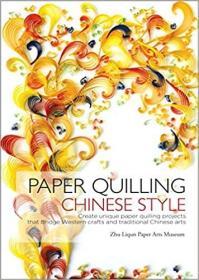
Madame Bovary 包法利夫人 福楼拜 经典名著小说
¥ 18 九品
仅1件
广东广州
认证卖家担保交易快速发货售后保障
作者Gustave Flaubert
出版社Bantam Classics
ISBN9780553213416
出版时间1982
装帧平装
页数512页
上书时间2024-12-15
- 在售商品 暂无
- 平均发货时间 12小时
- 好评率 暂无
- 店主推荐
- 最新上架
商品详情
- 品相描述:九品
- 商品描述
-
Madame Bovary (Bantam Classics) 平装 – 1982年 7月 1日
作者 Gustave Flaubert (Author), Lowell Bair (Translator), Leo Bersani (Introduction)
基本信息
出版社 : Bantam Classics (1982年 7月 1日)
语言 : 英语
平装 : 512页
ISBN-10 : 0553213415
ISBN-13 : 978-0553213416
商品重量 : 204 g
尺寸 : 10.69 x 2.26 x 17.02 cm
This exquisite novel tells the story of one of the most compelling heroines in modern literature--Emma Bovary.
"Madame Bovary has a perfection that not only stamps it, but that makes it stand almost alone; it holds itself with such a supreme unapproachable assurance as both excites and defies judgement." - Henry James
Unhappily married to a devoted, clumsy provincial doctor, Emma revolts against the ordinariness of her life by pursuing voluptuous dreams of ecstasy and love. But her sensuous and sentimental desires lead her only to suffering corruption and downfall. A brilliant psychological portrait, Madame Bovary searingly depicts the human mind in search of transcendence. Who is Madame Bovary? Flaubert's answer to this question was superb: "Madame Bovary, c'est moi." Acclaimed as a masterpiece upon its publication in 1857, the work catapulted Flaubert to the ranks of the world's greatest novelists. This volume, with its fine translation by Lowell Bair, a perceptive introduction by Leo Bersani, and a complete supplement of essays and critical comments, is the indispensable Madame Bovary.
作者简介
The great French novelist was born in Rouen in 1821, son of a distinguished surgeon. He studied law briefly, but in 1844 he was struck with epilepsy–it was the first of a series of violent fits that filled Flaubert’s life with apprehension and drove him to lead a hermit’s life. Having been attracted to literature at an early age, he soon turned his entire attention to writing. His first novel, Madame Bovary, won instant fame upon his publication in 1857: Flaubert was sued for “immorality,” but was later acquitted.
An avid traveler, his fundamentally romantic nature reveling in the exotic, Flaubert went to Tunisia to research his second novel, Salammbo (1862). Both Salammbo and The Sentimental Education (1869) were poorly received, and Flaubert’s genius was not publicly recognized until his masterful Three Tales (1877). Among his literary peers, his reputation was extraordinary, and he formed lasting friendships with Turgenev, George Sand, and the Goncourt brothers.
Despite his reputation as a master of realists, he was not fundamentally a realistic novelist. Flaubert’s aim was to achieve a rigidly objective form of art, presented in the most perfect form. His obsession with his craft is legendary: he could work seven hours a day, many days on end, on a single page, trying to attune his style to his ideal of balanced harmony, seeking always le mot juste.
In 1875 Flaubert sacrificed his modest fortune to help his niece, Caroline, and as a result his last years were marked by financial worry and bitter isolation. He died suddenly in May, 1880, leaving his last work, Bouvard and Pécuchet unfinished.
— 没有更多了 —























以下为对购买帮助不大的评价